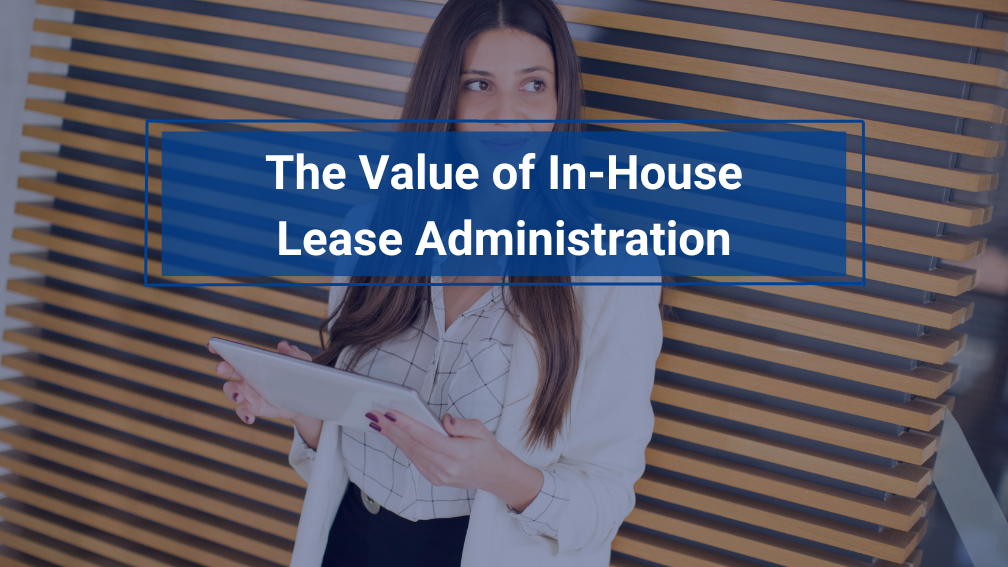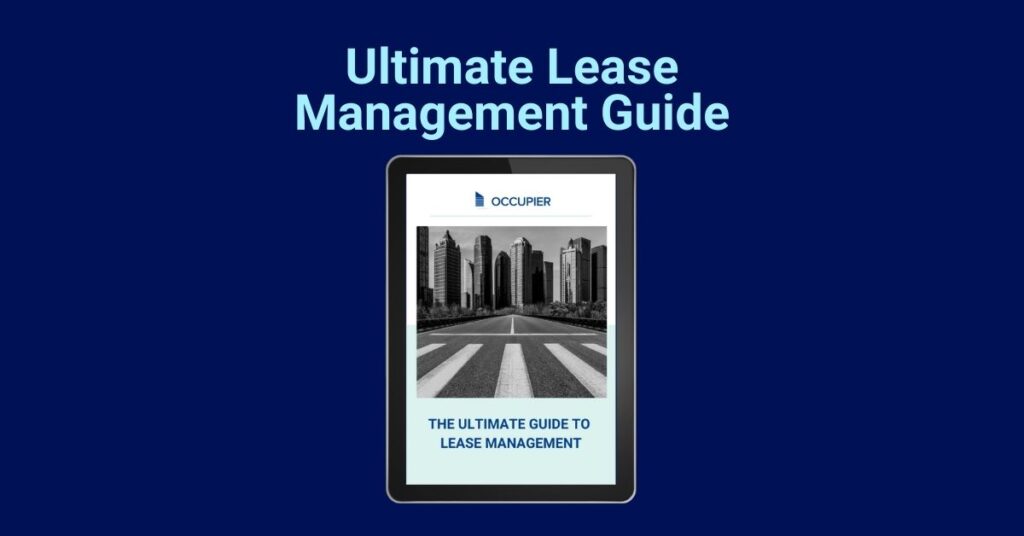The Value of In House Commercial Lease Management
Last Updated on January 2, 2024 by Morgan Beard
In the fast-paced world of commercial real estate, the management of commercial leases plays a pivotal role in the success of businesses. Many companies face the decision of whether to manage their lease portfolio in-house or outsource it to third-party service providers. In this blog post, we delve into the realm of in-house commercial lease management and explore the reasons why it’s a smart and strategic choice for businesses aiming to streamline operations, enhance control, and maximize value.
By the end of this blog post, readers will understand the compelling advantages of in-house commercial tenant lease management, including
- Greater control over lease portfolio
- Enhanced agility and responsiveness
- Improved cost-efficiency
- Mitigated risks and compliance concerns
- Deeper understanding of organizational needs and real estate strategies
What is Commercial Lease Management?
Before diving into the benefits of in-house management, let’s define what commercial lease management entails. It involves overseeing the various aspects of leasing properties, including lease negotiations, documentation, rent collection, renewals, and terminations. In-house management gives businesses the opportunity to handle these critical tasks directly, aligning them more closely with their operational goals.
Ultimate Lease Management Guide
A streamlined approach to lease management will provide an accurate view of upcoming critical events, ensure rent is being paid accurately and on time across your portfolio, as well as surface opportunities to negotiate savings and cost avoidance with your landlords. Without establishing a single source of truth for your lease portfolio data, it is nearly impossible to turn critical data into actionable insights that inform the broader business strategy.
Our Ultimate Guide to Lease Management will outline the processes you need to build to better manage your lease portfolio.
What are Property Management Services?
At its core, commercial property management encompasses the comprehensive administration and oversight of commercial real estate assets. This multifaceted discipline involves a range of tasks and responsibilities aimed at optimizing the value, working on facilities’ management, daily operations, functionality, and profitability of commercial spaces like office buildings, retail spaces and shopping centers.
Key Components of Commercial Property Management:
- Tenant Relations:
One role of commercial property management group is to foster positive relationships with tenants. This involves addressing their needs, addressing concerns, and ensuring that their leasing experience is smooth and satisfying. Effective communication and prompt resolution of issues contribute to tenant retention. - Ongoing Maintenance:
Property managers are tasked with maintaining the physical condition of the property. This involves scheduling routine maintenance, addressing repairs promptly, and ensuring that the property meets safety and regulatory standards. A well-maintained property with routine inspections enhances the customer experience. - Financial Management:
Property managers handle financial aspects such as budgeting, expense tracking, property accounting and financial reporting. They typically work closely with property owners and their tenants to develop budgets, allocate resources effectively, manage operating costs as well as cash flow. - Lease Administration:
Commercial property managers are responsible for overseeing lease agreements. This includes negotiating lease terms, ensuring compliance with lease terms, handling rent collection, and managing lease renewals and terminations.
Third party property commercial property management companies are not incentivized to save you, the tenant, money. Commercial tenants with large lease portfolios have one primary lease administration goal, that this is to ensure each lease is profitable and saves, better yet makes, their business money. Outsourcing to a third party property management or lease management company give them the keys to your organization’s second-largest expense, your real estate portfolio.
The Risks of Outsourcing Commercial Lease Management
Exploring the option of outsourcing commercial lease management unveils a spectrum of risks and challenges that businesses should carefully consider:
Loss of Control
Entrusting crucial lease management decisions to third parties introduces the potential for a significant loss of control. When businesses opt for external management, they relinquish their ability to directly shape and influence critical aspects of their lease portfolio. This loss of control can extend to decision-making processes, timelines, and even the overall strategy that guides lease-related choices. The absence of control can result in a misalignment between the management approach taken and the specific operational goals of the business.
Limited Customization
Third-party providers often offer generic solutions that might not be tailored to a business’s unique needs and requirements. Lease portfolios are as diverse as the businesses that manage them, each with specific demands driven by industry, location, and growth trajectory. Relying on an external provider may lead to a situation where businesses are forced to adapt their operations to fit a standardized solution, which can limit their potential for optimization and growth. In-house management, on the other hand, allows for the customization of strategies, ensuring that every decision aligns with the business’s distinct objectives.
Security Concerns
Sharing sensitive lease data with external entities introduces inherent security concerns. The transmission of confidential information to third-party providers, even those with robust security measures, carries a certain level of risk. Data breaches and leaks are unfortunate realities in today’s digital landscape, and the consequences of such incidents can be severe, ranging from financial losses to reputational damage. Opting for in-house management affords businesses direct control over their data protection measures, mitigating the risks associated with sharing sensitive information with external entities.
Outsourcing lease management might seem like a convenient choice. And for organizations with a small lease portfolio, it may be the right decision. As your real estate footprint expands, the risks associated with not managing your lease portfolio in-house can have far-reaching implications. Loss of control, limited customization, and security features concerns are crucial aspects to consider when evaluating whether to entrust third parties with the management of your valuable lease portfolio. Opting for in-house commercial management not only mitigates these risks but also empowers businesses to tailor their strategies, optimize operations, investment goals, and safeguard their sensitive lease-related data.
The Benefits of In-House Commercial Lease Management
For a Head of Real Estate managing their rapidly expanding tenant lease portfolio, the advantages of in-house commercial lease management are not just advantageous, but essential. Here’s how embracing in-house management can empower you to make quick decisions, analyze rent expenses, and seamlessly collaborate with various teams:
Greater Control for Swift Decision-Making
With an in-house approach, you regain direct control over your lease portfolio. This control is invaluable when you’re faced with rapid expansion and the need to make quick decisions. In-house management allows you to assess new lease opportunities promptly, negotiate terms that align with your strategic goals, and make agile decisions that suit your business’s evolving needs. This level of control enables you to seize growth opportunities without delays caused by external decision-making processes.
Real-Time Rent Expense Analysis
As your lease portfolio expands, accurately analyzing rent expenses becomes critical. In-house management provides you with the ability to swiftly access, evaluate, and understand your base rent, additional rent, percentage rent and operating expenses in real time. This capability allows you to identify cost-saving opportunities, negotiate favorable terms, and ensure that your financial strategies are always aligned with your expansion goals. A growing real estate portfolio can get costly quickly, especially if you are not analyzing the ROI on each location.
Seamless Collaboration with Cross-Functional Teams
Expansion often involves collaboration with various departments such as operations, construction, and accounting. In-house management facilitates seamless teamwork and communication by ensuring that lease-related decisions are aligned with the broader operational strategies. You can collaborate directly with these teams, aligning lease terms with operational requirements, construction timelines, and financial planning. This collaboration streamlines processes and minimizes misalignments that can arise when external parties manage your leases.
Tailored Strategies for Optimal Growth
Rapid expansion demands strategies that are tailored to your specific needs. In-house management allows you to customize your lease management approach according to your industry, location, and growth trajectory. You can adapt leasing strategies to support your expansion plans and make informed decisions that align with your unique objectives. This customization empowers you to grow strategically and take advantage of opportunities that are perfectly suited to your business model.
As a Head of Real Estate tenant overseeing a growing lease portfolio, in-house commercial lease management offers a suite of benefits that align seamlessly with your responsibilities. The greater control, real-time expense analysis, collaborative advantages, and tailored strategies that come with in-house commercial lease management position you to navigate expansion with agility, efficiency, and precision. By choosing in-house management, you equip yourself with the tools necessary to drive growth while ensuring that every lease-related decision is optimized to support your business’s success.
How Occupier Powers Your Tenant Lease Lifecycle
Occupier is the only lease management solution that powers the entire lease lifecycle — from site selection to critical date management and rent forecasting to lease accounting compliance. With its comprehensive suite of features, Occupier revolutionizes the way retailers, restaurateurs and office tenants manage their leases, offering seamless integration, insightful analytics, and strategic decision-making support for financial stability in your lease portfolio.
Our software simplifies every stage of the lease lifecycle, from initial negotiation to lease expiration. Its user-friendly platform centralizes all lease-related data, making it easily accessible to authorized team members. This streamlining eliminates the complexities often associated with lease management, enabling businesses to allocate more time and resources toward core operations. Occupier’s advanced search and reporting capabilities ensure that the right information is readily available, expediting tasks and facilitating effective communication across departments.
Collaborating with cross-functional teams is pivotal during expansion, and Occupier fosters this collaboration effortlessly. Its platform enables seamless sharing of lease data and documents among teams, ensuring that the operations, construction, and accounting departments remain on the same page. This unified approach prevents misalignments, minimizes communication gaps, and enhances overall efficiency. With Occupier, cross-functional teams can collaborate seamlessly, effectively contributing to the organization’s success
See why savvy commercial tenants are adopting in-house lease management tooling to save time. Occupier users report cutting time spent on their lease administration tasks by 50%. And save money spent on a 3rd party lease service provider by creating real estate workflows purpose built for your real estate, operations and accounting teams to expand your real estate footprint.

